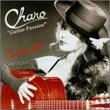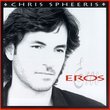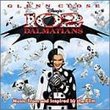| All Artists: Marco Beltrami, Buck Sanders Title: Max Payne Members Wishing: 0 Total Copies: 0 Label: La-La Land Records Original Release Date: 1/1/2008 Re-Release Date: 11/4/2008 Album Type: Soundtrack Genres: Pop, Soundtracks Style: Number of Discs: 1 SwapaCD Credits: 1 UPC: 826924108024 |
Search - Marco Beltrami, Buck Sanders :: Max Payne
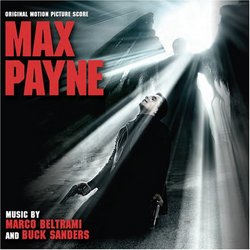 | Marco Beltrami, Buck Sanders Max Payne Genres: Pop, Soundtracks
Presenting the motion picture score to the 20th Century Fox blockbuster action/thriller Max Payne, starring Mark Wahlberg (The Departed, The Italian Job, Boogie Nights) and Mila Kunis (Forgetting Sarah Marshall, That 70's ... more » |
Larger Image |
CD DetailsSynopsis
Product Description Presenting the motion picture score to the 20th Century Fox blockbuster action/thriller Max Payne, starring Mark Wahlberg (The Departed, The Italian Job, Boogie Nights) and Mila Kunis (Forgetting Sarah Marshall, That 70's Show) and based on the popular video game sensation. Acclaimed composer Marco Beltrami (Hellboy, 3:10 To Yuma, Live Free Or Die Hard, Scream) harnesses the film's intense action and drama with an exhilarating, full-throttle orchestral score that propels the listener into the dark, exciting world of Max Payne. Similarly Requested CDs
|
CD ReviewsFrustrating mixed bag from Beltrami Jon Broxton | Thousand Oaks, CA | 02/13/2009 (3 out of 5 stars) "The latest video game to become a big-budget action movie, Max Payne is directed by John Moore and stars Mark Wahlberg as the eponymous lead character, a DEA agent whose family was slain as part of a conspiracy who, while investigating the shadowy criminal underworld whi may be responsible for his wife's murder, teams up with a sexy assassin (Mila Kunis), who is herself trying to avenge her sister's death. While the video game received a superb noir score from Finnish composers Kärtsy Hatakka and Kimmo Kajasto, Max Payne's cinematic cousin is scored by Marco Beltrami in collaboration with his long-time assistant and sound designer Buck Sanders. Much has been made of the fact that a `detuned piano' is the centerpiece of the film's sonic world, and was intended to reflect the dark, tortured journey Max undertakes by making "the piano's upper registers sound like a glassy, chime-like instrument, while the low end became an un-pitchable rumbling". Now, I'm usually a fan of Beltrami's unique style, irrespective of the genre, but I found the bulk of Max Payne to be almost unlistenable. The opening moments of "Max Attacks" are unusual, with eerie textures and a dream-like feeling, but the whole thing quickly descends into mindless electronic thumping and various grating synth textures which, had I not been reviewing it, would have caused me to switch the whole thing off. Although Beltrami was clearly intending to capture Payne's incessant, machine-like single-mindedness, and his `emotional coldness', and while I understand what he was trying to do musically, it doesn't mean I have to enjoy listening to it. To be fair, some of the later cues - "Investigation", "Colvin Quivers", "Window Payne", "Max Marches On" - do have a larger scope and a meatier orchestral sound palette which Beltrami manages to turn into something positive, despite the whole thing being almost drowned by the incessant synth pulse. Similarly, the detuned piano chords in "Payneful Piano" are interesting from a textural point of view, but never really amount to anything more than one interesting timbre surrounded by a whole load of exasperating, rasping electronica. Two cues - "Dark Heaven" and "Heaven to the Max" - do have a more conventionally thematic, orchestral presence, and actually seem rather beautiful compared to the sludge around it, but in the end there's far too little music to get hold of to make this score anything less than a chore to sit and experience."
|

 Track Listings (17) - Disc #1
Track Listings (17) - Disc #1
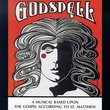
![Waylon Jennings - Greatest Hits [RCA]](https://nationalbookswap.com/cd//m/27/2727/92727.jpg)

